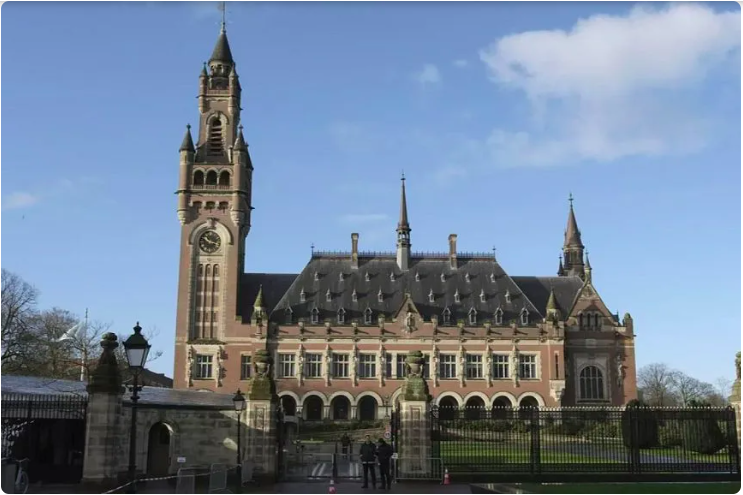No, the ICJ Didn’t Declare Israel an Illegal State — Here’s What Actually Happened

No, the ICJ Hasn’t Declared Israel an ‘Illegal State’: Debunking Viral Misinformation
False claims about the International Court of Justice (ICJ) declaring Israel an illegal state have been making the rounds on social media once again — but there is no truth to them.
In recent weeks, video clips of former Palestinian Foreign Minister Riyad al-Maliki speaking at the United Nations have resurfaced, widely shared alongside captions asserting that the UN’s highest court has officially ruled Israel to be an “illegal state” that should no longer be recognised as sovereign. The video, however, dates back to July 2024 and presents a misleading interpretation of a non-binding opinion issued by the ICJ.
Let’s break down what actually happened — and what didn’t.
The Source of the Claim
The video shows al-Maliki stating that “Israel's occupation of Palestine has been declared unlawful” and referencing an ICJ opinion that criticises Israel’s actions in the Palestinian territories. He says the court found the occupation to be in violation of international law, calls for the cessation of settlement activity, and urges Israel to end its occupation “as rapidly as possible.”
While the ICJ did issue an advisory opinion on this subject — requested by the UN General Assembly — it is crucial to understand the limits of such a decision.
What the ICJ Actually Said
The ICJ's advisory opinion, published in July 2024, does indeed describe Israel’s continued occupation of Palestinian territories as a violation of international law. The court also criticises the construction of Israeli settlements in the occupied West Bank and East Jerusalem, stating they are illegal under international law.
However, this decision was non-binding — meaning it carries no legal force and cannot compel Israel to act. Importantly, the ICJ did not declare Israel an “illegal state,” nor did it instruct other nations to cease recognising Israel as a sovereign country.
The advisory opinion focused strictly on Israel’s presence in Palestinian territories — not on the legitimacy of Israel as a member state of the United Nations or its right to exist.
A Recycled Misinformation Campaign
The false claim that Israel has been “declared illegal” by the UN or ICJ has been circulating online for over a year. A simple search on platforms like X (formerly Twitter) or Facebook shows that the same video clip has been posted repeatedly with exaggerated and incorrect descriptions.
Al-Maliki’s remarks were a political interpretation of the ICJ’s opinion — not a summary of a legally binding decision. And while his speech does highlight the deep international concern over the Israeli-Palestinian conflict, it should not be mistaken for a court ruling.
Historical and Legal Context
Israel captured the West Bank, East Jerusalem, and the Gaza Strip during the 1967 Six-Day War. Since then, its control over these territories — especially its continued settlement expansion in the West Bank and East Jerusalem — has been widely criticised by the international community.
Palestinians seek to establish a future independent state in these areas. Israel, however, views the West Bank as “disputed” territory and considers East Jerusalem as part of its undivided capital.
More than 100 Israeli settlements now exist in the West Bank, housing over 500,000 settlers. An additional 200,000 Israelis live in East Jerusalem. According to watchdog group Peace Now, the settler population continues to grow at a rapid pace.
The international consensus — upheld by multiple UN resolutions and statements from human rights groups — is that these settlements violate the Fourth Geneva Convention, which prohibits an occupying power from transferring its population into occupied territory.
What Happens Next?
While the ICJ’s advisory opinion has no binding force, it may influence international debate, diplomatic pressure, and legal arguments in future UN deliberations or at the International Criminal Court (ICC). Still, it does not signal the delegitimisation of Israel or impact its sovereign status at the UN.
The misinformation surrounding this issue underlines the broader challenge of online disinformation in international affairs. Claims like these, even when easily disproven, spread rapidly and risk escalating tensions or distorting public understanding.
Conclusion
Despite viral posts suggesting otherwise, the ICJ has not declared Israel to be an illegal state. It issued a non-binding opinion criticising Israel’s occupation and settlement activity in Palestinian territories, not Israel’s statehood or legitimacy.
As with many complex international issues, it’s crucial to rely on verified sources, fact-check viral claims, and understand the legal nuance behind headlines. The Israeli-Palestinian conflict is one of the most contentious and long-standing in modern history — and misrepresenting key developments does little to help build the informed discourse needed to address it.
- Art
- Causes
- Crafts
- Dance
- Drinks
- Film
- Fitness
- Food
- Jocuri
- Gardening
- Health
- Home
- Literature
- Music
- Networking
- Alte
- Party
- Religion
- Shopping
- Sports
- Theater
- Wellness


